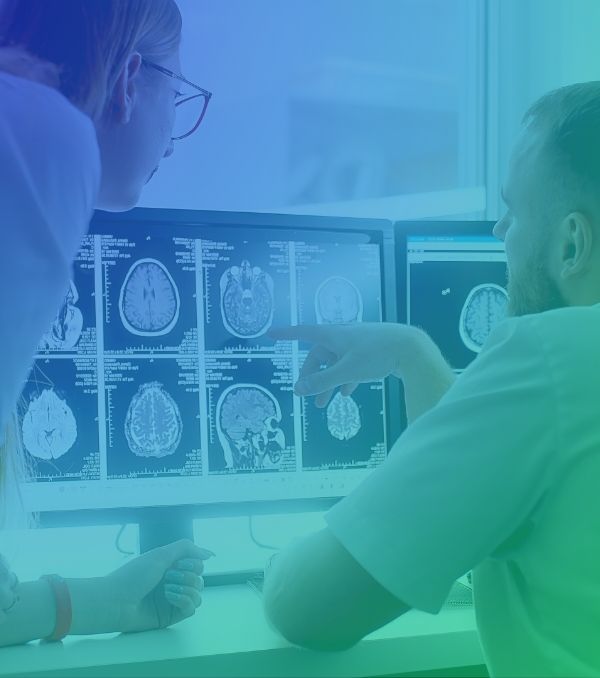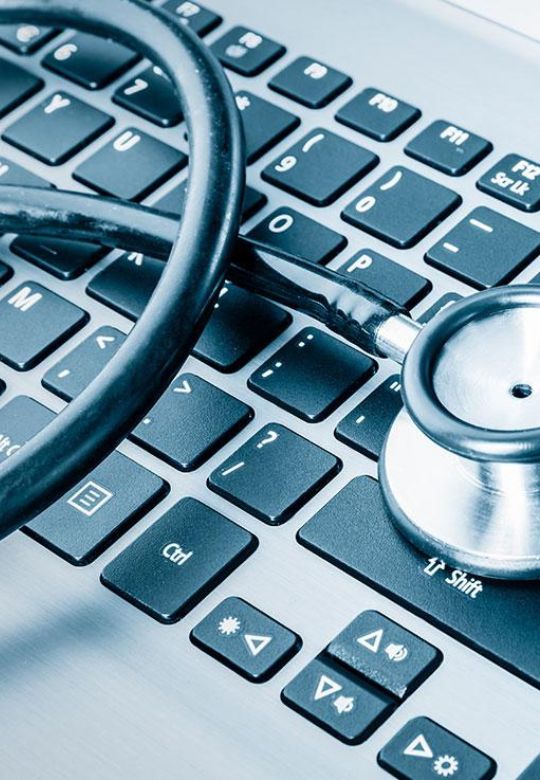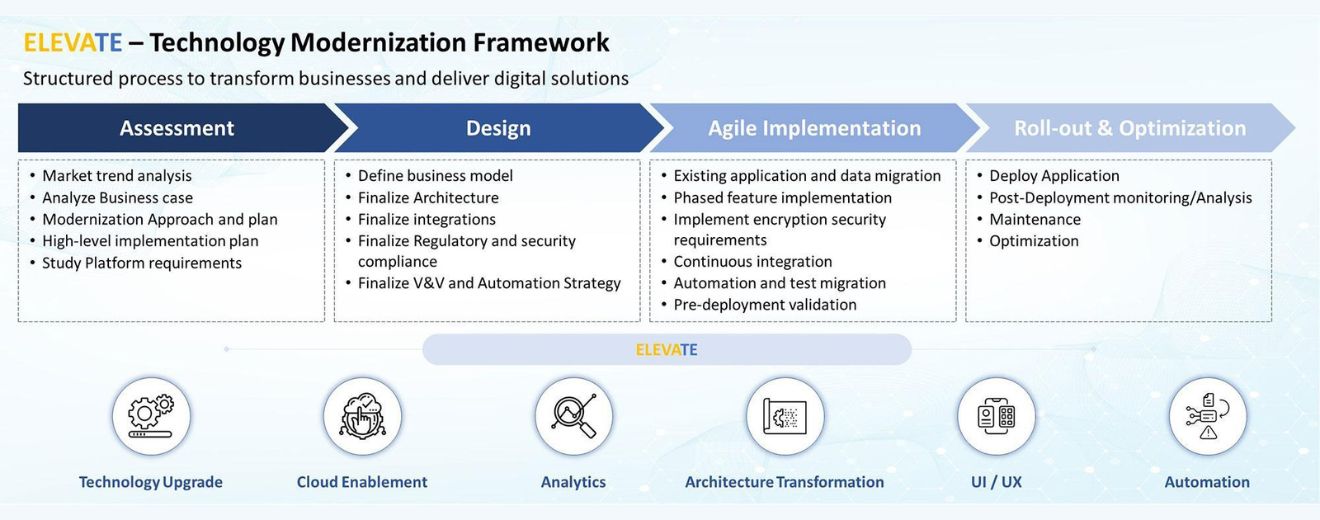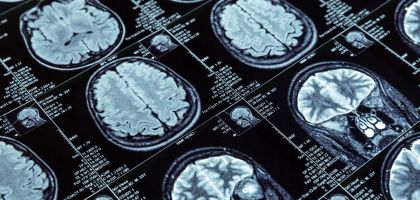

Charting the Future of Radiology: Innovation, Regulation, and Real-World Impact
Distinguish genuine innovation from hype, operationalize compliance for SaMD and AI/ML-enabled devices, and harness real‑world data (RWD) and post‑market evidence (RWE) to continuously improve safety, performance, and trust.
Watch Now

Transforming Rural Healthcare Access in the US
Collaborating with University of Illinois Urbana-Champaign and OSF Healthcare to bridge rural healthcare gaps.
Read PR

Transforming Healthcare with AI
A Technical Roadmap to Innovation, Compliance, and Metrics
Watch Webinar

Designing Patient-Centric Engagement
Uncover strategies to build impactful patient engagement programs that drive outcomes in connected healthcare.
Whitepaper

Advanced Data Integration in patient care
Indian healthcare industry to invest further in computational infrastructure for data integration in patient care.
Read ArticleEnd-to-end Healthcare Application Modernisation and Development
Modern healthcare thrives on advanced cloud-native technologies, AI-driven insights, and data analytics to elevate patient outcomes. For healthcare companies, end-to-end software engineering fosters seamless integration, remote monitoring, and data security across devices and platforms. Yet, challenges persist, including compliance with stringent regulations, legacy modernization, adopting wearables, and implementing robust cybersecurity to protect sensitive medical information and ensuring interoperability across complex ecosystems.
Tata Elxsi delivers healthcare software engineering solutions designed for compliance, patient-centricity, and innovation. Our experts leverage "Design Digital" capabilities to enhance user experiences, enable data exchanges, and modernize legacy systems, helping healthcare organizations transition into a value-based, technology-driven future.
Modernizing Medical Device Software for Enhanced Performance and Scalability in Biopharmaceuticals


Here’s How We Help Develop Future-Proof Healthcare Applications
Seamless healthcare devices and apps integration for secure data exchange
- Streamlined medical device software development, full-stack engineering, legacy modernisation, microservices migration, containerisation and DevOps
- Healthcare software solutions in line with IEC60601, IEC 62304, ISO 14971, ISO 13485, IEC 62443, and UL 2900 compliance standards
Cloud-agnostic solutions for enhanced scalability, accessibility and security
- Implement cloud-agnostic architectures for scalability, high availability, and secure data storage across global deployments.
- Enhance workflow efficiency through containerization, DevOps automation, and continuous integration with advanced monitoring.
Integrating technologies for improved clinical decisions
- Comprehensive AI and Big Data solutions encompassing model development, NLP, image analytics, and data governance
- Empowering mobile health with Native / Hybrid apps compatible for remote devices, legacy app decommissioning, SaMD, IoMT and human-centric design.
ELEVATE - Technology Modernization Framework

The ELEVATE technology modernization framework is a structured, end-to-end approach designed to digitally transform businesses. It begins with a detailed assessment to define business goals, analyze market trends, and formulate strategic plans. The design stage refines architecture, integrations, and regulatory compliance strategies. Agile implementation ensures smooth data migration, security, and continuous integration. Finally, roll-out and optimization focus on application deployment, rigorous monitoring, and ongoing enhancements to maintain competitiveness.
Key Areas: Technology Upgrade | Cloud Enablement | Analytics | Architecture Transformation | UI/UX | Automation
Assessment & Design
The assessment phase includes market trend analysis, business case evaluation, modernization planning, high-level implementation planning, and platform requirement studies. The design stage involves defining business models, finalizing architecture and integrations, ensuring regulatory and security compliance, and establishing verification, validation, and automation strategies.
Agile Implementation
This stage emphasizes existing application and data migration, phased feature implementation, encryption and security measures, continuous integration, automation and test migration, and pre-deployment validation to ensure readiness for deployment.
Roll-out & Optimization
This final stage involves deploying applications, conducting post-deployment monitoring and analysis, maintaining systems, and continuously optimizing performance for sustained business efficiency and competitiveness.
Why Tata Elxsi?
- Interoperability and scalability through upgraded infrastructures and optimized workflows, enabling truly robust, future-ready healthcare solutions.
- Comprehensive cybersecurity measures aligned with strict regulatory standards to safeguard patient data and minimize risks.
- Proprietary hybrid frameworks for platform migration, optimizing operational costs and significantly accelerating healthcare technology transformations.
- Expert-led DevOps, cloud, and microservices solutions fostering agile deployments, reducing downtime, and enhancing cross-system efficiencies.
- A global award-winning design studio delivering immersive, human-centric interfaces for superior user engagement and satisfaction.
In Focus
Information Hub
-
What are key considerations in healthcare software development?
Healthcare software development demands a secure, regulatory-compliant approach, prioritizing patient data privacy, clinical workflows, and medical device connectivity. Robust architecture, usability, and cybersecurity are vital to ensure safety and adoption. Leveraging modern frameworks and proven engineering practices helps deliver scalable, interoperable healthcare software that improves patient outcomes and supports faster time-to-market in an evolving digital health ecosystem.
-
Why is software modernization important in healthcare?
Modernizing legacy healthcare software ensures continued regulatory compliance, enhanced cybersecurity, and integration with emerging technologies like AI and IoMT. Proactive lifecycle management extends product longevity, reduces maintenance costs, and improves performance. A structured modernization roadmap supports better patient care, minimizes risks of obsolete systems, and aligns healthcare software platforms with evolving industry standards and user expectations.
-
What compliance requirements govern healthcare and medical device software?
Healthcare software typically must adhere to regulations and standards such as HIPAA in the United States, GDPR in Europe, and various global mandates like IEC 62304 for medical device software. Depending on the application scope, compliance with ISO 14971 for risk management and FDA guidelines may also be required. These frameworks ensure patient data confidentiality, product safety, and consistent quality. Additionally, interoperability standards such as HL7 and FHIR can come into play. Engaging with experienced partners who understand regulatory intricacies helps streamline compliance efforts and prevents costly missteps throughout the development lifecycle.
-
How can we ensure data security in healthcare software engineering?
Data security in healthcare hinges on robust encryption protocols, secure data transfers, and multi-factor authentication to prevent unauthorized access. Incorporating security checks within the development pipeline—such as static code analysis and penetration testing—helps identify vulnerabilities early. Maintaining compliance with standards like HIPAA, IEC 62443, and ISO 27001 is vital for safeguarding sensitive patient information. Regular software updates, security patches, and employee training further strengthen defenses. Ultimately, a well-defined cybersecurity strategy, paired with strong governance policies, can protect healthcare systems from breaches and maintain the trust of patients and stakeholders.
-
How does cloud-native development benefit healthcare organizations?
Cloud-native development leverages containerization, microservices, and DevOps practices to enable agile, scalable healthcare applications. By offloading infrastructure management to cloud providers, organizations can reduce operational costs, accelerate deployment, and focus on innovation. Cloud platforms also support integrated security features, automated monitoring, and compliance certifications, streamlining regulatory audits. This approach fosters real-time data accessibility, enhancing clinical decision-making and patient engagement. Additionally, cloud-native architectures are more resilient, allowing rapid recovery from disruptions or traffic spikes. Overall, cloud-native development positions healthcare organizations to respond quickly to changing industry demands.
-
What role does AI play in modern healthcare applications?
AI enhances healthcare solutions by enabling advanced analytics, predictive modeling, and automation of clinical workflows. Machine learning algorithms help identify disease patterns, predict patient outcomes, and optimize resource allocation. Computer vision and image analytics streamline diagnostics in medical imaging, while natural language processing refines clinical documentation and telehealth interactions. AI-driven chatbots improve patient engagement and triage, reducing strain on healthcare resources. By uncovering insights in large data sets, AI supports evidence-based decision-making and personalized care, ultimately improving patient outcomes and operational efficiency in modern healthcare settings.














